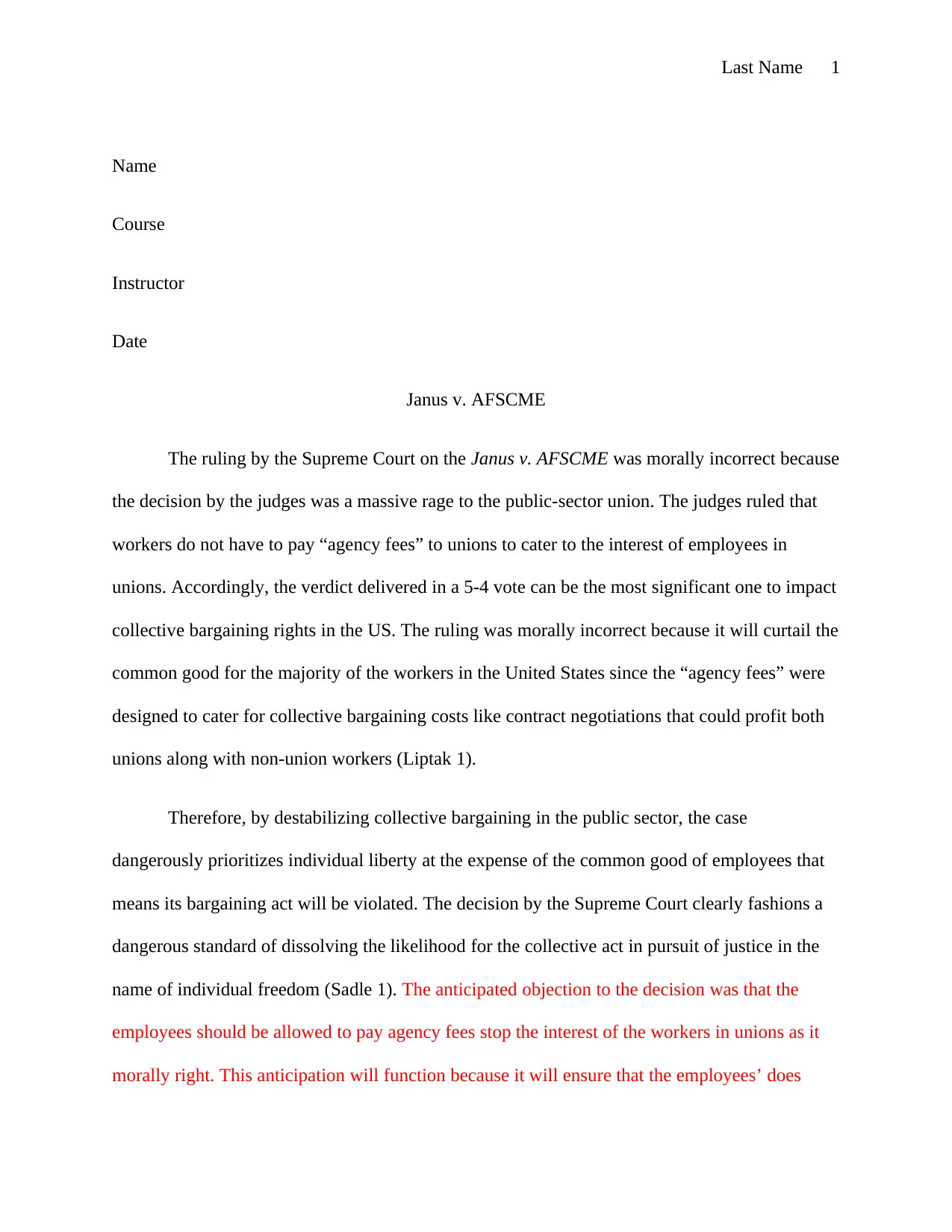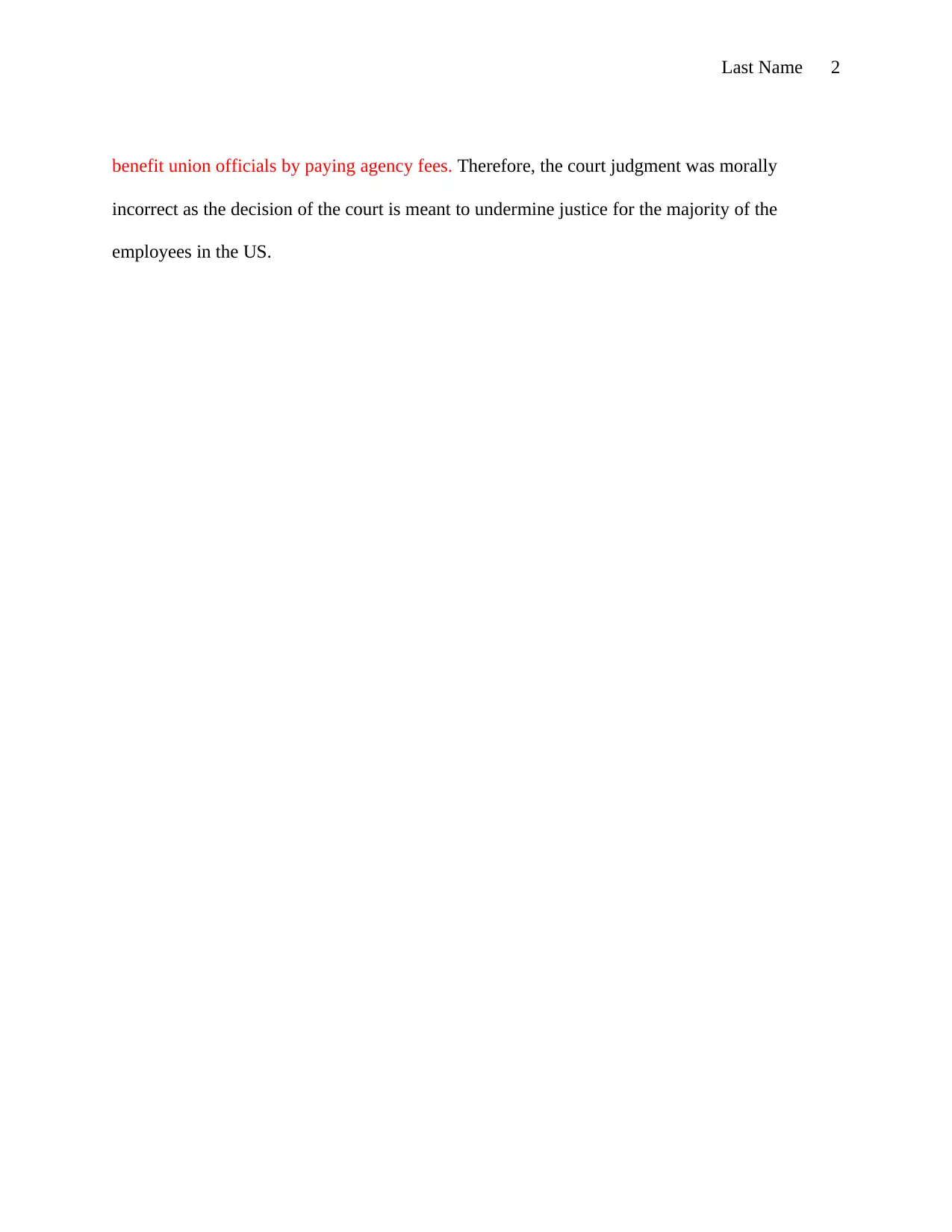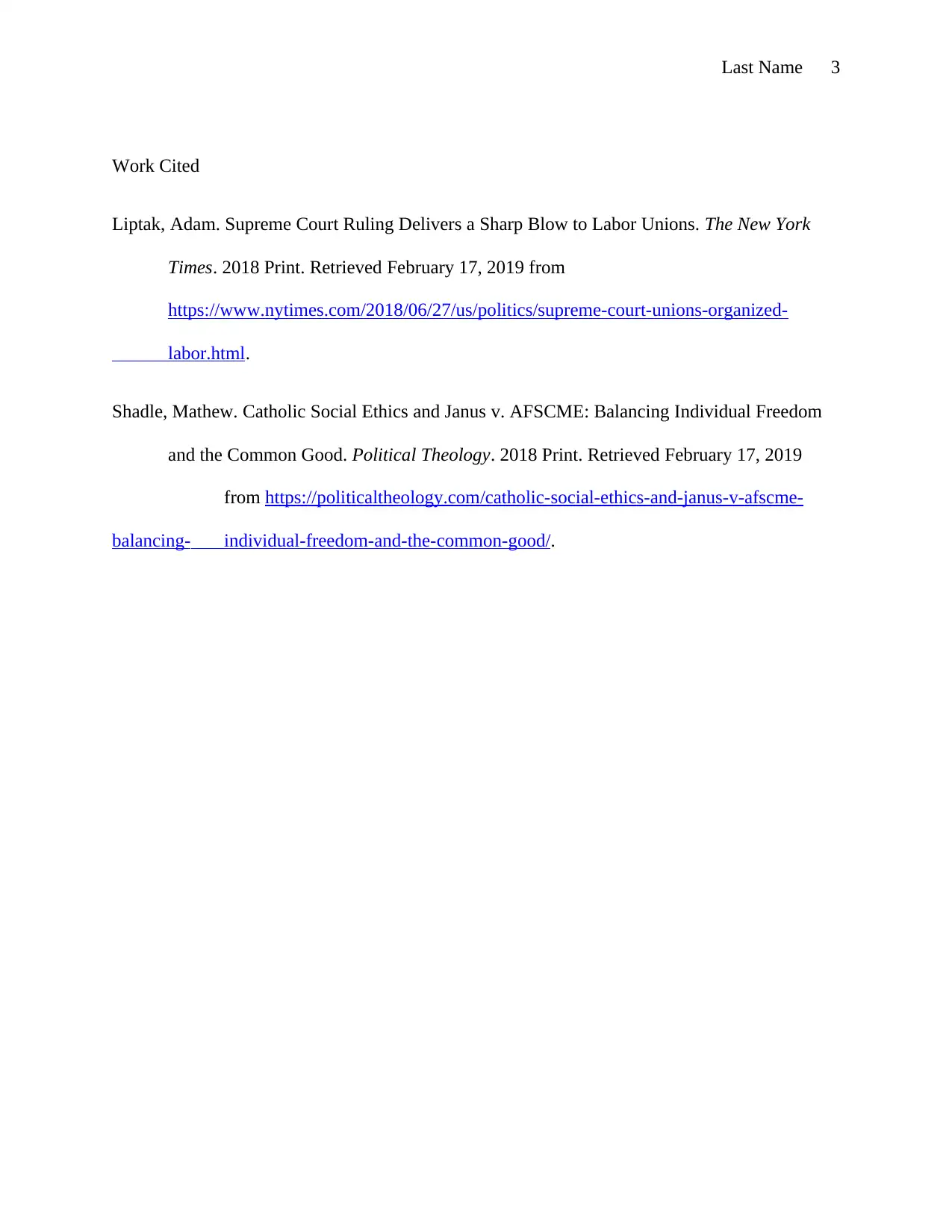A Moral Critique: The Supreme Court's Decision in Janus v. AFSCME
VerifiedAdded on 2023/04/21
|3
|369
|135
Essay
AI Summary
This essay critically examines the Supreme Court's ruling in Janus v. AFSCME, arguing that the decision was morally incorrect due to its detrimental impact on public-sector unions and collective bargaining rights. The author contends that the ruling, which eliminates mandatory “agency fees,” prioritizes individual liberty at the expense of the common good, potentially destabilizing collective bargaining and undermining justice for the majority of employees. The essay anticipates and addresses the objection that employees should not be forced to pay agency fees, ultimately concluding that the court's decision undermines the collective act in pursuit of justice. Desklib offers a wide array of resources, including similar essays and past papers, to aid students in their academic pursuits.
1 out of 3





![[object Object]](/_next/static/media/star-bottom.7253800d.svg)